So, that’s it for 2019, for me at least. This isn’t really going to be a post about data protection – though I’ll note that over the year, the highest read posts have been:
- Stopping and starting NetWorker from the Windows Command Line
- Data Protection Software 18.2
- Data Protection Central is Here
- Data Protection Software 19.1
- Introduction to NetWorker 18.1 WebUI
So, obligatory mention of data protection done, I figured since the summer (or for those people in the northern hemisphere – winter) break is usually a time to put your feet up and read a good book, I might share some of the things I’ve read and listened to over the year.
The Commonwealth Saga

I discovered Peter F. Hamilton in 2006 on holiday, initially reading his Night’s Dawn Trilogy. I liked his writing but it wasn’t until his Commonwealth Saga, starting with Pandora’s Star, that I fell in love with his work. Admittedly, none of these books are new. Pandora’s Star and Judas Unchained were released in 2004 and 2005 respectively, and it initially seemed they’d just be a fantastic pair. But he followed them with The Dreaming Void, The Temporal Void and The Evolutionary Void in 2008, 2009 and 2010 respectively. And he even managed another two in the same universe, The Abyss Beyond Dreams (2014) and Night Without Stars (2016).
But I’ve read, and re-read these books so many times, to the point that they’re now “comfort reading”. The books you read when you’re between other books and you just can’t find something that grabs your interest.
This is a science fiction series I find totally gripping – and, I think so much so because it paints a vision of future I’d love to live in. It also has, I believe, arguably the best description ever of a truly alien species. And I’m not talking funny-noses-Star-Trek style aliens. I definitely re-read this series at least once this year, and if you’ve never read Hamilton before, I’d certainly suggest starting with this block of books.
These are all relatively long books – even for me as a fast reader when I’m glued to something, it takes me a full month to get through them, end-to-end. (My reading is mainly during meals It’s often only new books I read at any time away from the dining table.)
Birdsong
I’d never heard of Ludovico Einaudi until a few months ago. Work has been pretty stressful for me this year and I started hunting out “chill” and “relax” compilations on Apple Music. It’s practically impossible to listen to one of those compilations without hearing Birdsong, from his “Day 2” album, and I believe it’s impossible to feel stressed while listening to this song.
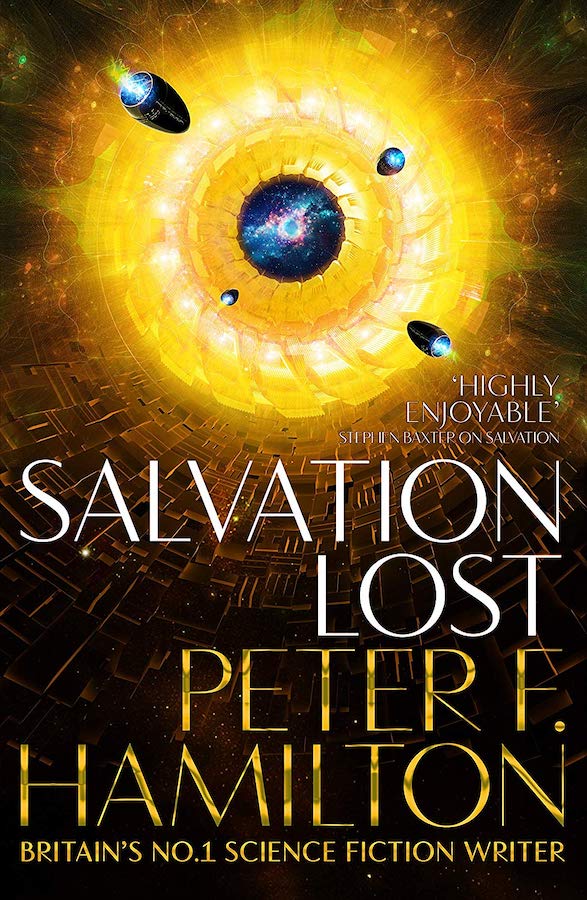
Salvation Lost
Staying with Peter F. Hamilton for a little longer, this year also saw the release of the second book in the Salvation sequence. Salvation (2018) and now Salvation Lost (2019) explore a different science-fiction universe in two different time-streams – near future and far, far future.
It’s grittier than the Commonwealth saga. If you’ve read his Night’s Dawn Trilogy it’s somewhere between the two in tone. It’s one of those stories that has so many different facets to launch that the first book was more about getting all the elements in play – the second book, released late 2019, started to weave those stories together. (If you’ve read Dan Simmons’ Hyperion Cantos, you’ll be familiar with the styling of the first book – it’s very much focused around progressing the overall story through each major character telling a long exploratory piece.)
If you’re after high-stakes science fiction with lots to wrap your head around, making your way through Salvation and Salvation Lost is highly recommended.
Being a first-read, this was around a 6-day book for me. (It’s no point me giving page counts, I only buy eBooks these days.)
Curse of the Contemporary
I stumbled across Laura Marling a few years ago, and LUMP is somewhat of a departure for her normal style. There’s definitely a hipsterish, Chet Faker style to LUMP, but where Chet Faker can sometimes be jarringly discordant, LUMP is an EP that is blessed by Marling’s smooth vocal styles and excellent instrumental work.
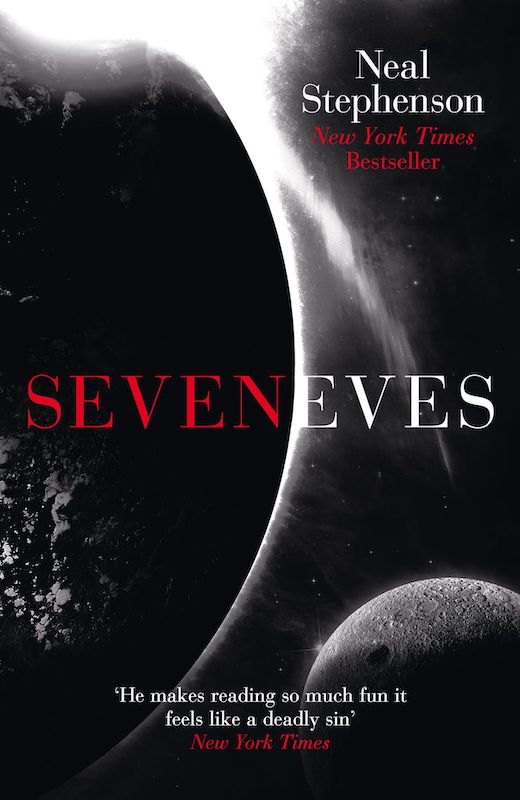
Seveneves
Seveneves was the first Neal Stephenson book I read. It’s a few years old now (2015), but I stumbled across it on a bargain option in the iBooks store one morning and figured since I’d only just finished re-reading Pandora’s Star, I should read something new.
It’s set in the very near future – to the point that a key focus on the first half of the book at least is the International Space Station (ISS). That means there’s also a lot that you can personally connect to in the book, which may or may not be a good thing, depending on how you react to the subject matter.
I can’t say I loved it. But I didn’t loathe it, either. In fact, there were parts of it that were amazing and the pacing of the story was usually very quick and engaging. But I did feel that while the first half of the book was an absolute cracker, the second half had a bit “oh shit I better finish this story somehow” sort of aspect to it.
It was certainly a good diversion, and being a standalone book, there’s no commitment to move on and read anything else after you’re done.
For me, Seveneves was around a 7-day read. In theory it should have been shorter, but the second half was a little underwhelming and slowed me down a tad.
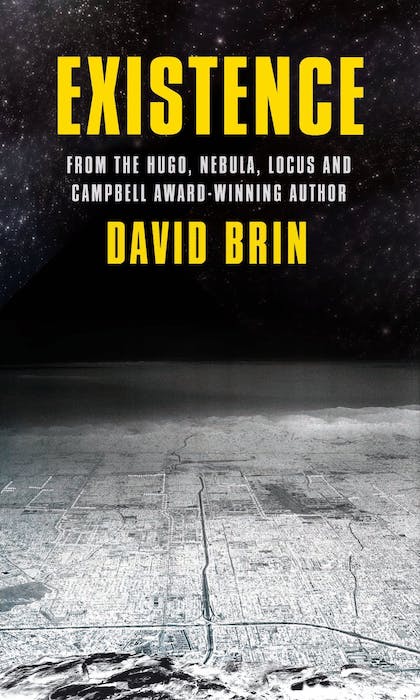
Existence
Then there was “Existence”, by David Brin. Again, published a while ago (2012), but it was the first David Brin book I’ve read.
I’m not sure there’ll be a second.
OK, so it had some interesting concepts, but … hear me out. Have you ever gone to see a really good singer or band in concert, and while it’s pretty good, you get to that point where the night is 3/4 over and they start doing one of those “look at us being funky” 15 minutes or more long riffs that just goes on and on and on and all you can do is think about how much your feet hurt and it would be really great if they could just stop trying to do impressive things for the sake of it?
Yeah, that was kind of my reaction to David Brin. The concept, the story was actually really interesting, but at times I just wanted to scream when he’d divert down some literary path that served no path other than to say, “Aren’t I a clever writer?!”
Worth reading, but you may find yourself gritting your teeth from time to time.
This was around a 10-day book for me, perhaps mostly because I found it a little exasperating at times and didn’t feel inclined to read it away from the dinner table.
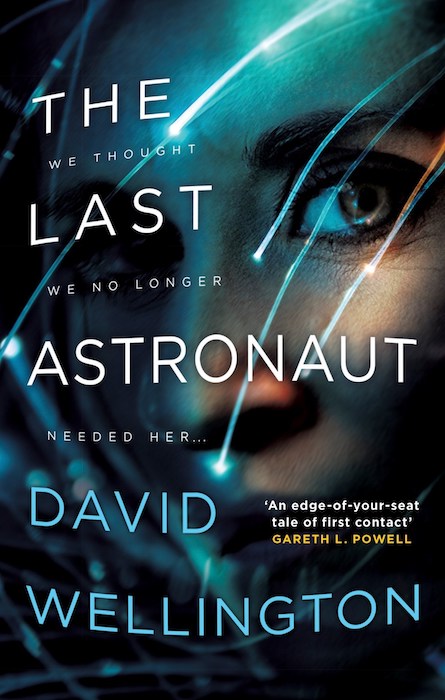
The Last Astronaut
David Wellington’s “The Last Astronaut”, unlike many of the books I’ve mentioned so far, was released in 2019, and like Seveneves is a near-future science fiction story.
Now, this isn’t a story in the same league as say, Peter Hamilton, but David Wellington is now definitely an author I’ll keep an eye on.
The book tells the story from the point of view of Sally Jansen, our titular last astronaut, who is sent with a team on a mission to investigate something new that’s appeared near Earth.
This was a darker book than I’d normally read (you’ll laugh at that statement when you get to some other books below), but there was definitely at times a real nightmarish quality to the book. If you like to feel a little creeped out from time to time with science fiction, this is a ripper of a read. It’s also very much a singular story, so there’s no worry about being compelled to read a subsequent book or set of books.
If I have one criticism of the book, it’s that the ending became a little bit deus ex machina. That being said, it’s still a story that holds up well.
This was a 4-day read for me. Even at times being a little spookier than I’d normally like, I found it pretty gripping.
The Attractions of Youth
A 2017 release, Attractions of Youth by Barns Courtney is an album that’s right up my alley. At times reminiscent of Gin Wigmore, Barns Courtney’s debut album has all the right elements: great vocals, great beats, and a genuine mix of musical styles.
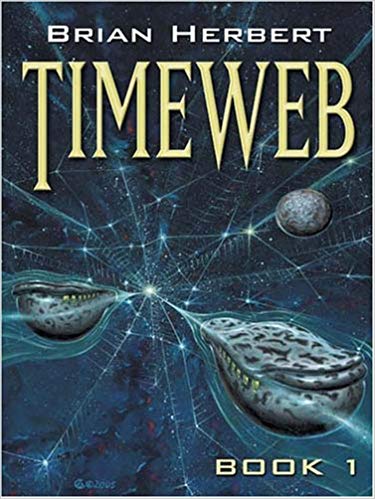
Time Web
This is more of a cautionary tale.
I purchased The Time Web trilogy, by Brian Herbert, as a single volume eBook for $4.95 (Timeweb – 2004, The Web and the Stars – 2007, and Webdancers – 2008), and honestly believe I paid about $4.94 too much for it. I forced myself to finish the books only because, at the time, I figured it was clearly something written in the 1980s or thereabouts and should be read reflective of the often poorer story-telling processes of that era – particularly as it related to ‘B-grade’ science fiction. It was only towards the end of the third book that I looked at the publication dates and realised no, these are just awful books.
So, if you want to read truly D-grade science fiction that’s so predictable you’ll find yourself yawning at apparently “big” plot twists, and characters so one-dimensional it’s a wonder they don’t create a singularity on the page, this is a trilogy for you. Otherwise, stay away from this egregiously bad collection of words.
It took me 3 weeks to get through the Timeweb trilogy, and I want those three weeks of my life back.
The Rage War
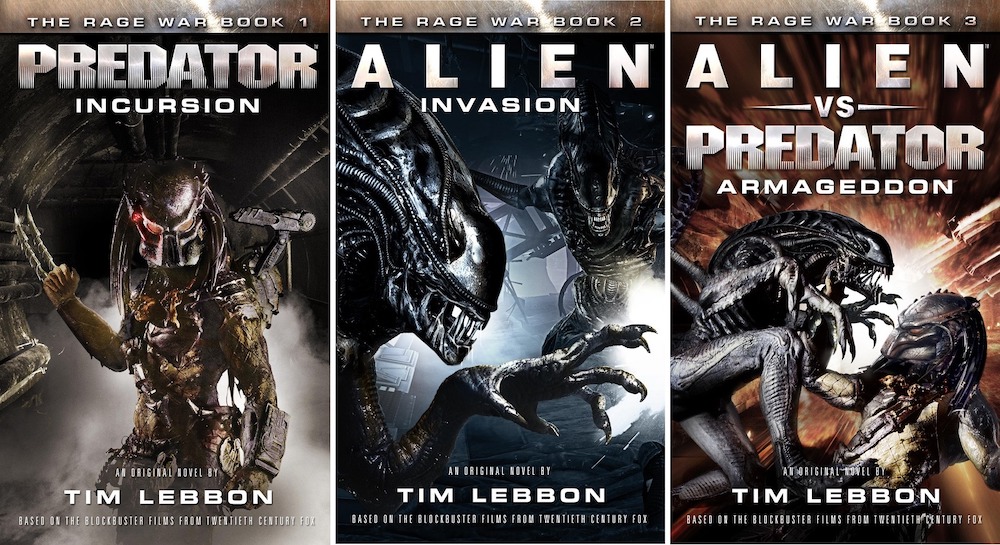
OK, this is probably where you’ll laugh over me saying previously that I found elements of “The Last Astronaut” a little darker than I’d normally read. So, I have this thing where I don’t ever actually dream normal dreams – I only ever really have nightmares. (Like, every night.)
So because of that funny little way my brain works, I tend to avoid almost anything horror or thriller. I don’t need additional grist for the mill, so to speak. The one exception I make is anything to do with the Alien franchise. I read a few Alien-related books this year (see also: Alien: Out of the Shadows, Alien: Sea of Sorrows, and Alien: The Cold Forge), but these ones stood out for me – they take the normal Alien franchise universe and jump several hundred years into the future again. Humans have faster-than-light travel and it’s a very different universe. It again has the Predator species in it, but unlike the reasonably woeful movies, they’re woven much tightly into the story and given real depth.
Look, it’s not revelationary stuff – you won’t get to the end of the series and think, “Oh wow, that was world-changing”, but it’s a great romp with appropriate levels of eek built-in. For me, it was about 2 weeks reading.
Run Home Slow
This was also the year I discovered The Teskey Brothers, a Melbourne based band with a distinctly non-Melbourne sound to them.
What can I say – this is great music that if I listen to on public transport, makes me want to tap at least one foot (this is, for an introvert like myself, about as “out there” as I get when listening to music in public).
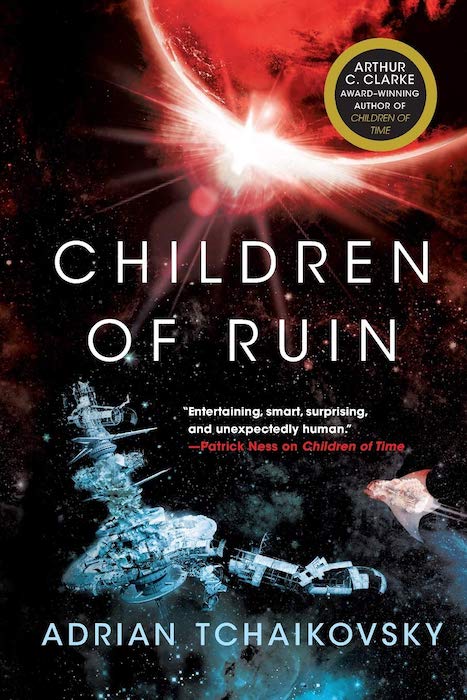
Children of Ruin
Children of Ruin is the sequel to Children of Time (2015), and is, like its predecessor, an absolute cracker of a story. (It should definitely be read after Children of Time, as it closely follows the first story.)
This is far-future science fiction and explores concepts around what might be the legacy of the human race.
It’s definitely high concept science fiction in these two books, even though Children of Ruin takes a slightly darker tone than its predecessor. Yet it’s not one of those sterile, far-future science fiction books where you struggle to connect to the characters or their situation, this is emotionally tight, regardless of who, or what the story is talking about at any given time.
It took me about a week to get through this, then another week to read it again just for the sheer joy of it.
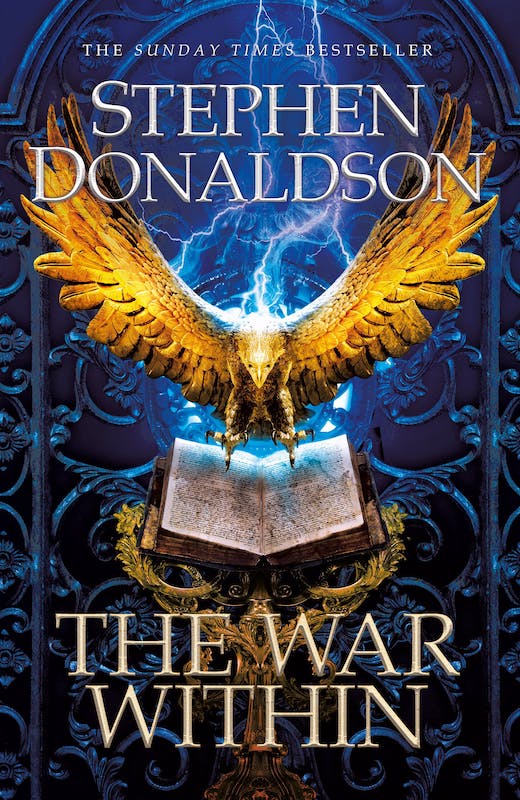
The War Within
There are two key things about Stephen Donaldson books that hold true regardless of the story:
- He has a laser focus on the anti-hero – someone thrust into the hero role who has distinctly unlikeable aspects of their personality, and doesn’t want to be there, and
- His vocabulary is likely much wider than yours – keep a dictionary handy.
The second point is often a turn-off for Donaldson. eBook readers with dictionaries overcome that concern for me, and I kind of love being introduced to new words. (After a certain description in his Covenant books, I spent weeks with the word chrysoprase rolling around in my head.)
There are several key series when it comes to Donaldson: the Chronicles of Thomas Covenant (10 books in total, written over a span of 36 years), Mordant’s Need, The Gap Series, and now The Great God’s War, of which The War Within is the second volume (2019). (If you’ve not tried Donaldson, I’d recommend starting with Mordant’s Need.)
Donaldson has written both high fantasy (Covenant/Mordant’s Need) and science fiction (The Gap), but this is his first series on true magic fantasy. You might even say it’s his approach to “lowbrow” fantasy such as you’d normally expect from Raymond E. Feist. The first book, The Seventh Decimate, set the scene and established the story of this world: magic is often expressed as a single skill – e.g., ability to control lightning, and is often considered to be a “decimate” because it’s more often than not used for destructive purposes.
Donaldson is the master of telling a story in layers – the first book, the outer layer, was straight-forward. This book dives deeper and becomes more nuanced. It goes from black and white to hundreds of shades of grey.
It was a good 7-day read for me, and I loved every minute of it.
Jolene Remix – Dumplin’
OK, if you follow me on Twitter you’ll know that at least a couple of times a year I get quite vocal about one of my favourite shows, RuPaul’s Drag Race.
It’s technically not a cover. It’s still Dolly Parton singing but sped up to a tempo closer to a dance track. The drag queens in the video clip are all favourites and great performers, and it’s impossible for me to feel stressed or in a bad mood watching this clip. It’s happy, it’s joyous, it’s hilarious, and it’s everything that I love about RuPaul’s Drag Race, rolled up into a three-minute clip.

Dark Emu
When I was growing up, Australian history was mainly focused on colonial expansion into a continent that had an “unfortunate” undeveloped Aboriginal society. The classic image of the lone Aboriginal standing on one leg, holding a spear. The boomerang barely got a look-in, and we were taught that the Indigenous population of Australia were nomads who had done little more than discover fire.
School learning didn’t cover the horrendous massacres that were inflicted against the Aboriginal population, other than a mild mention that the Tasmanian population had been lost. (I recall, in vivid clarity, by comparison, long lessons talking about a massacre of Chinese gold miners.)
Post-school, I read far more about the evils that were inflicted on the Aboriginal population of Australia by colonial governments and settlers, and it rendered me furious when John Howard, one of our prime ministers, lamented the “black armband view of history”. The idea of people daring to suggest that our ancestors had been cruel and horrible to the Indigenous population of the country was too much for someone of such limited imagination as John Howard.
Dark Emu in parts mentions some of those massacres, but it’s not about that. Nevertheless, I frequently found myself remembering John Howard’s words and becoming even angrier.
Dark Emu tells the story about how the Aboriginal population of Australia had a rich agrarian society that just operated differently to how Europeans considered farming.
There were bakeries perhaps 20,000 years ago. There were complex fish farming systems over 10,000 years old. This was a rich culture that knew how to manage the land, and it’s a history that would be denied to us if not for the works of people like Bruce Pascoe.
This is something that should be mandatory reading for all Australians. And valuable reading to anyone else interested in history. I don’t want to say anything else – I found myself so frequently dumbfounded by the details, and others deserve that rich experience, too. It took me a few weeks to read because it was emotionally and historically loaded.
Other Mentions
I read a lot this year. If I broke out every book this would probably be the longest blog article on this site. So I’ll speed it up and finish this off:
- Firefall, by Peter Watts: Years ago, I read “Blind Sight”, which Peter Watts published for free as an eBook on his website. It was a great book that was deep, psychological science fiction. Think deep, complex science fiction wrapped around ideas like those in Forbidden Planet. While there’s practically no character overlap, you need to read “Blind Sight” first, and you can buy the two together for easier access. A 7-day head-spinning read for me.
- Star Trek Destiny, by David Mack: This is a three-part trilogy that deals with the most significant enemy in the Star Trek universe: The Borg. It’s a shame this isn’t treated as canon because it’s great story-telling. (I suspect Picard will take us in entirely different directions on the Borg storyline. Not quite to the Doctor Who/Star Trek crossover, but still quite different.) It’s a bit twee in some places, but you never expect anything more than that with novels that are written based on TV series. The story is well-paced though and good, easy reading. It took me a couple of weeks to get through all three books.
- Stargate Atlantis: Legacy: This 8-book series is written by a few different authors. I’m a huge Stargate fan. If I had to trade a new Stargate TV show that’s a continuation of one of the previous series vs everything in the Star Wars universe – well, bye-bye to the force. There are two disappointments for me in the Stargate universe: Atlantis needed another two seasons at least, and Universe needed another five. These eight books in the Legacy series start pretty much the day after the events of the end of the fifth season of Atlantis and advance probably 2-3 seasons worth of material. I loved them because they were Atlantis and because they extended the story so well. I devoured them all in a couple of weeks – and will inevitably revisit them in 2020.
- Uprooted, by Naomi Novik: A standalone fantasy novel, this was a thoroughly enjoyable story in the vein of conventional magic-and-monsters. At times quite dreamy, the way in which magic was described sometimes reminded me of The Deathgate Cycle by Weis and Hickman. Short, fun and well-paced, this was just a fantastic bit of fun with all the right emotions attached to it.
Zero Gravity
OK, I’m actually not a big Eurovision fan, but I am a huge Kate Miller-Heidke fan. So much so that her rendition of Love is a Stranger was the song played at my wedding as soon as the marriage was completed. (No copyright issue, I checked with her on Twitter and she said to go ahead and use it!)
Zero Gravity is everything I love about Kate. She’s operatically trained, and her music will often delve into both rock/pop and opera. Zero Gravity was no different. In fact, there’s a point about 3/4 of the way through the song where Kate does a classic, high, long-note punch that sends shivers up my spine every time I hear the song.
So that’s it
That’s it for me for 2019. It’s been great spending the year writing about my tech passion, and if you’ve made it this far, thanks for reading about other things I’ve been passionate about this year.
See you all in 2020.
